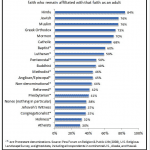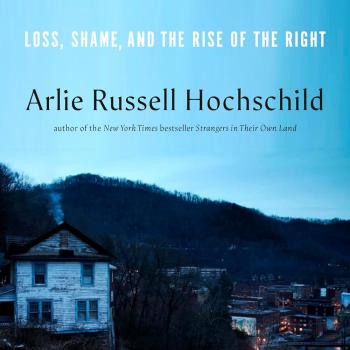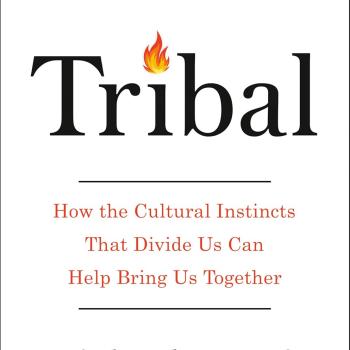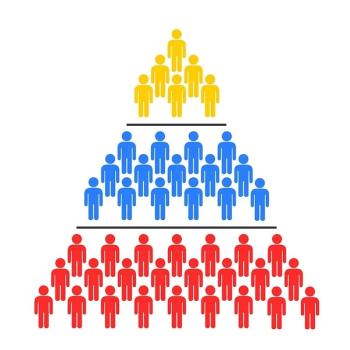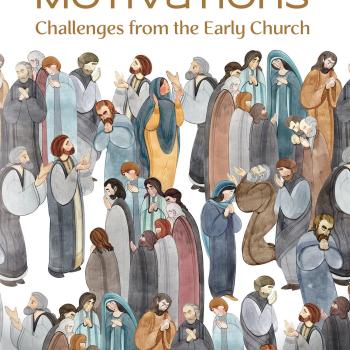Noll identified some of the ways people misuse the Bible to justify their political ideas. McBride urged Christians to see repentance as a political witness.
What are some practical implications, especially in a Chinese context? I’ll list five.
Theology Wars are Neither Just Nor Inerrant
1. Church Division
Noll forces us to reconsider how theological wars over “infallibility” and “inerrancy” influence the church’s ministry.
For instance, these battles have fueled church division and thus undermined the church’s ability to be a Christian political witness of an alternative community (polis). As a result, this single issue dictates one’s denominational loyalties and theological party.
Confession statements are parsed without ceasing in order to determine others’ theological identity. In mainstream politics, candidates must watch every word for fear of “sending the wrong message.” Likewise, Christian discourse is plagued with anxiety. Christians are afraid that either someone will misunderstand them or else they will not say everything (and thus “deny” the truth by omission).
As a result, one-issue churches (like one-issue voters) tend to overlook a lot of the common ground they do have with other people.
2. Apathy towards Social Ministry
There have been other casualties in the inerrancy war. One can see a noticeable pattern.
Those who press inerrancy strongest tend to justify apathy towards social ministry by isolating evangelism as the purest form of obedience. On the other hand, those who have a lower view of Scripture tend to neglect evangelism.
Why is this?
I suspect the reason has to do with the nature of the debate itself. Inerrancy ultimately comes down to the question of authority–– Is the Bible without error and thus trustworthy? Or, do we have subjective license to assess what is true and what is false within Scripture? Conservatives see the second option as an assault on God’s authority. As a result, this debate draws a very distinct line in the sand. In effect, people see the issue in black and white terms: “Are you for the Bible or against it?”
Framed this way, it is inevitable that the debate will influence evangelism, which is the ultimate summons to heed Christ’s authority.
Glorifying God can de facto be reduced to conversion, giving one’s allegiance to Christ. In the process, we can overlook other ways of glorifying God (e.g. loving others by engaging social problems).
3. Ethnocentric Exegesis
Our theological methods can also perpetuate ethnic, social and political disunity. For example, what happens when we confuse theology with exegesis? The biblical text ceases to the arbiter of theological truth; instead, one’s cultural/systematic grid dictates one’s interpretations and perspectives.
I recall hearing a few otherwise conservative missionaries state that teachers need to train Chinese students in both “eastern hermeneutics” (as used in Chinese religions) as well as so-called “western” (historical-grammatical) methods. Yet, by trying to impose some sort of distinctly “ethnic” hermeneutic onto Scripture, they would essentially have perpetuated the sense that people are first from their ethnic/culture and secondarily Christian.
One sees this problem especially prevalent among Sino-theologians (see chapter 3 of Saving God’s Face), who claim that progressive revelation justifies their “Chinese” conclusions. (According to Noll, this same line of argument was used by the American slave owners in the 1860s.)
4. Tradition
More briefly, the Chinese Church potentially compromises its Christian political witness when it overemphasizes the authority of Christian tradition. As a result, wrongs are not made right. Authorities then can perpetuate any number of injustices on the basis of precedent, not the Bible.
According to Noll, preachers in the 1860s would appeal to examples of slavery in Old Testament as warrant for their own evil practices. A similar uncritical, ahistorical reading of the Old Testament persists today among many Chinese Christians, who are quick to draw parallels and applications from ancient Israel to modern China. Inasmuch as this is done, the Church risks repeating the mistakes of those who came before Christ.

5. Need to repent for silence?
For a long time, the evangelical church in China has largely remained silent on social issues, primarily focusing on evangelism and not wanting to get involved in political affairs. McBride’s comments raise questions about the church’s complicity in a range of social ills.
If Christians remain silent and unengaged in solving the practical problems within their communities, what are they saying about the authority and character of Christ?
Do they prolong the suffering of others for fear of suffering themselves if they were to speak about social problems?
One Clarification
To be clear, I affirm that the Bible is true and authoritative in all that it affirms.
I also am grateful for those who have defended the biblical witness against the attacks of liberal scholarship. The applications mentioned above simply aim to look at the bigger picture, highlighting the fact that there are consequences of not doing so.
What do you think?
How do you see Chinese churches using the Bible for political (or a-political) purposes?
(This is a follow-up to my previous post reviewing the chapters by Mark Noll and Jennifer McBride in Christian Political Witness.)







